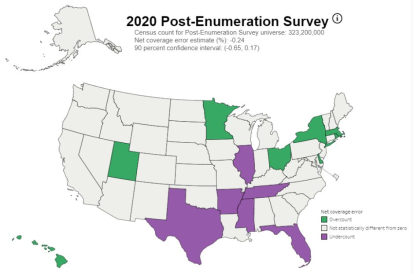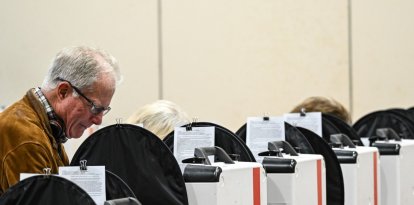The 2020 Census hurt red states and rewarded Democrats
Texas Republican Congressman Troy Nehls is demanding explanations and promises an investigation if Republicans win a majority in the House.

(Pexels)
Errors in the U.S. Census Bureau's 2020 census have especially hurt states where the Republican Party has a larger voter base, while historically Democratic states have benefited. Texas Republican Congressman Troy Nehls has demanded formal explanations for a ruling that means loss of seats, constituents and federal funds for those affected.
Nehls said the following in statements to Just The News: "The numbers don't lie. Texas was undercounted by 2%, which means we were cheated out of an additional seat in Congress. And four other Republican states were as well. As a result, these red states have less representation in Congress, fewer votes in the Electoral College, and therefore receive less federal funding"
A surprising pattern

In May 2022, the Census Bureau published a post-count analysis which measured the accuracy of the 2020 census. However, the report was for informational purposes only, and there is no possibility of correcting the census until the next official count in 2030. The report acknowledged undercounting in six states and overcounting in eight.
The six states whose populations were undercounted were Arkansas, Florida, Illinois, Mississippi, Tennessee and Texas. All but Illinois voted for Donald Trump in the 2016 and 2020 presidential elections.
"The numbers don't lie"
By contrast, of the eight over-counted states (Delaware, Hawaii, Massachusetts, Minnesota, New York, Ohio, Rhode Island and Utah) six voted Democrat in both of the previous two elections. The other two, Ohio and Utah, opted for Trump in both races.
These figures aroused suspicion for Nehls: "This wasn't a coincidence because things like this don’t just happen. The bureaucrats in Washington have an agenda. They want Democrats in power and won't let anything get in their way. We must get to the bottom of what happened." In addition, he announced that, in the event that his party gains a majority in the House, it will open an investigation to "determine how and why these significant errors happened to ensure this doesn't happen again."
Congressional seats
Hans von Spakovsky, director of the Election Law Reform Initiative and legal fellow at the Heritage Foundation, published an article analyzing what these mismatches entailed in concrete terms.
Electoral votes
These rulings also have an impact on the number of electoral votes for the 2024 and 2028 presidential elections, since they are calculated based on the number of senators and representatives in each state. For example, Florida should have 32 electoral votes for the next two elections but will have only 30 due to miscounting. By contrast, blue states such as Minnesota and Rhode Island, which should have nine and three votes respectively, will each receive an extra vote.
The price of errors: $1.5 trillion
Finally, von Spakovsky points out that the miscount will also have an impact on citizens' pockets: "Because the Treasury and other federal departments will continue to use the original, official Census numbers (and not the new numbers contained in the PES), these errors will affect $1.5 trillion in funding received by states in federal appropriations during the next decade in disbursements that are distributed based on the population of each state."
























